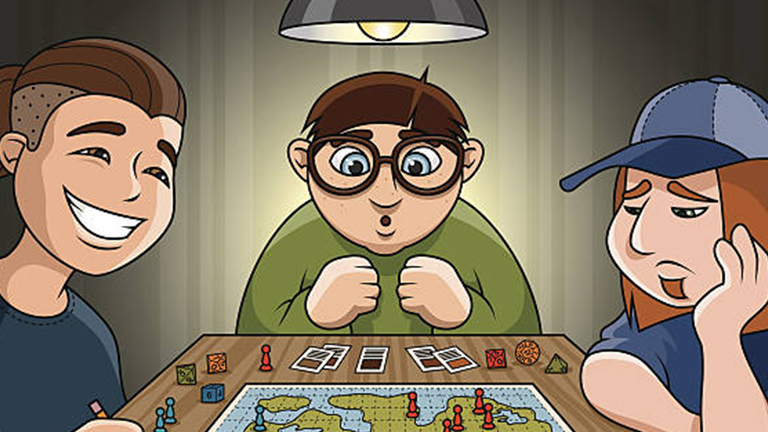Welcome to the World of Role Playing Games
Immerse yourself in the enchanting universe of role playing games (RPGs), where every player embarks on a thrilling journey, navigating through imagined worlds, battling foes, and unfolding epic tales of adventure and mystery.
RPGs bridge the realm between fiction and reality, allowing players to embody diverse characters, explore mystical lands, and weave their narratives. Whether it’s traditional tabletop games like ‘Dungeons & Dragons‘ or expansive video game RPGs, each offers a unique gateway to diverse, fantastical worlds, fostering creativity, strategic thinking, and camaraderie among players.
As players dive into these meticulously crafted universes, they are not merely observers but active participants, steering the story, facing consequences, and etching their paths through collaborative storytelling and dice-rolled luck. Join us as we delve into the rich, boundless domains of RPGs, exploring their history, impact, and the enchanting tales that have captivated imaginations for decades.

Why People Love Role Playing Games
Role Playing Games (RPGs) encompass a vibrant world where players assume the roles of fictional characters and embark on adventures, navigating through intricately designed narratives and worlds. But what exactly magnetizes a wide array of individuals to these games? Let’s delve into some key reasons!
1. Escapism and Imagination
RPGs provide a space for escapism, allowing players to step into diverse, fantastical worlds far detached from our everyday realities. It’s a chance to explore different realms, embody unique characters, and experience scenarios that are typically beyond our reach, stimulating our creativity and imagination.
2. Character Expression and Development
These games afford players the liberty to craft and develop their own characters—heroes, anti-heroes, or anyone in between. This aspect allows the exploration of different personalities, moral choices, and developmental arcs, offering a personalized touch to the gameplay and narrative.
3. Social Interaction
Especially in tabletop RPGs, social interaction plays a pivotal role. Players gather, negotiate, strategize, and collectively weave the tapestry of their adventure, fostering camaraderie, cooperation, and social skills. Even online Role Playing Games often include collaborative elements, forming communities and friendships among players.
4. Problem-Solving and Strategic Thinking
RPGs frequently present players with challenges, puzzles, and conflicts that require strategic thinking and problem-solving skills. Players engage in planning, negotiate obstacles, and devise solutions, stimulating cognitive functions and decision-making skills.
5. Emotional and Moral Engagement
The narratives in RPGs often delve into complex, emotional, and moral territories, engaging players in stories that can be moving, thought-provoking, and morally ambiguous. Role Playing Games provides not just entertainment but also an emotional and sometimes philosophical exploration.
6. Achievement and Progression
Lastly, the sense of achievement and progression in RPGs can be immensely satisfying. Levelling up a character, acquiring new skills or items, or progressing through a challenging narrative provides a rewarding experience that can boost motivation and self-esteem.
Conclusion
From the liberating escapism to the rich, interactive narratives and the stimulating challenges, RPGs offer a multifaceted experience that appeals to our desires for adventure, social interaction, and accomplishment. Whether it’s exploring uncharted territories, forming alliances, or overcoming daunting adversities, Role Playing Games encapsulate a dynamic world where imagination, strategy, and stories intertwine, capturing the hearts of players worldwide.
Top Role Playing Games
Role-playing games (RPGs) have been a beloved genre across both tabletop and digital platforms, each offering players immersive experiences through character-driven narratives and intricate, expansive worlds.
Tabletop RPGs
Dungeons & Dragons (D&D): Undoubtedly one of the most iconic and influential RPGs that has significantly shaped the genre, providing a fantastical framework for cooperative storytelling.
Pathfinder: A derivative of D&D, Pathfinder provides a rich and comprehensive alternative, with its own unique worlds and mechanics.
Call of Cthulhu: This game plunges players into a world of cosmic horror and mysteries, inspired by the works of H.P. Lovecraft.
Shadowrun: Merging cyberpunk and fantasy, Shadowrun offers a unique, future-fantasy world where technology and magic coexist.
Vampire: The Masquerade: Enter the dark and intricate society of vampires, exploring themes of morality, power, and humanity.
Video Game RPGs
The Elder Scrolls V: Skyrim: Esteemed for its expansive world and player freedom, Skyrim is a landmark in the RPG genre.
The Witcher 3: Wild Hunt: Renowned for its rich narrative, complex characters, and moral decisions that significantly impact the storyline.
Final Fantasy Series: With numerous entries spanning decades, Final Fantasy has become synonymous with RPG excellence, known for its epic tales and inventive gameplay mechanics.
Mass Effect Series: A space opera that offers a blend of engaging narrative, character development, and moral dilemmas in a sci-fi setting.
Pokémon Series: A beloved franchise that combines creature collection with RPG elements, appealing to a wide array of audiences.
These role playing games, among others, have defined and enriched the RPG genre, each providing different thematic experiences and gameplay mechanics, catering to various player interests and preferences. From dark, cosmic horror to high fantasy and futuristic sci-fi, the RPG genre offers a multifaceted universe of exploration, storytelling, and character development.
Role Playing Games FAQ’s
What is a Role Playing Game (RPG)?
An RPG is a game in which players assume the roles of characters in a fictional setting, making decisions and performing actions within the rules of the game and the structured narrative. This genre can encompass tabletop, live-action, or video games.
How Do I Get Started With Tabletop RPGs?
To start with tabletop RPGs, you’ll typically need a rulebook for your chosen game, dice, and a character sheet. Gather a group, assign a Game Master (GM) to guide the narrative, and begin your adventure together!
What is a Game Master (GM) or Dungeon Master (DM)?
A GM or DM is a person who acts as the organizer, narrator, and referee in a tabletop RPG. They create and guide the story, control non-player characters, and enforce game rules.
Can I Play RPGs (Role Playing Games) Online?
Absolutely! There are various platforms for playing tabletop RPGs online, such as Roll20 or Fantasy Grounds. Video game RPGs can often be purchased and downloaded through online platforms like Steam.
How Do I Create a Character in an RPG?
Character creation varies per role playing game but generally involves choosing a race, class, and alignment, and allocating points to various attributes like strength, intelligence, etc. Characters also often have a background story which can influence their abilities and motivations.
What Does “Leveling Up” Mean?
“Leveling up” refers to the progression of a player’s character, typically involving the improvement of their abilities, skills, and/or equipment. This often occurs through accumulating experience points (XP), usually gained by completing quests or overcoming challenges.
Can I Play an RPG Solo?
Yes, some RPGs, particularly video game RPGs, are designed for solo play. There are also solo adventure modules and rule variants for some tabletop RPGs that cater to solo players.
How Important is the Story in an RPG?
Storytelling is a crucial element in RPGs, providing the framework and context for adventures. A well-crafted story enhances immersion, emotional engagement, and drives the progression of the game.
What is “LARP”?
LARP stands for Live Action Role-Playing, where role playing games players physically act out their characters’ actions. It involves real-world interactions and often utilizes props, costumes, and physical settings.
Are RPGs Suitable for All Ages?
While many RPGs are designed to be family-friendly, the suitability can depend on the game’s complexity, thematic elements, and content. Always check the rating and content description of the role playing game to ensure they are age-appropriate.


